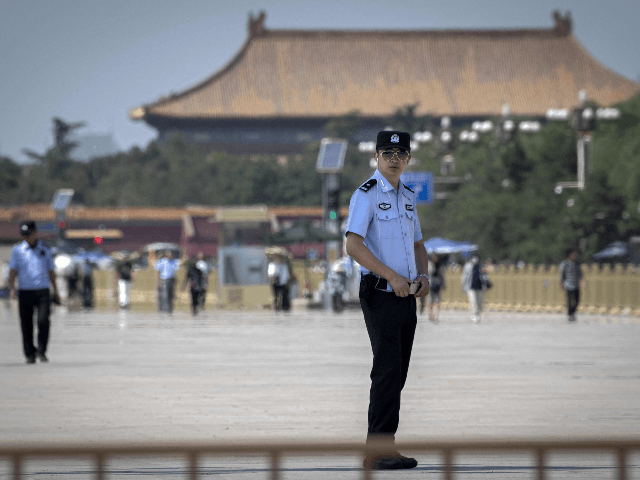The Chinese Communist Party has been preparing for the 30th anniversary of Tiananmen Square throughout 2019. It has scrubbed mentions of the massacre from social media and launched a campaign of silence that has evidently enlisted Western social media companies.
The most troublesome dissidents have been “disappeared” entirely, as in the case of musician Li Zhi, a popular folk singer who dropped off the face of the Earth after daring to make an allusion to the Tiananmen massacre.
“First, an upcoming tour was canceled and his social media accounts were taken down. Then his music was removed from all of China’s major streaming sites – as if his career had never existed at all,” the Associated Press (AP) reported on Sunday.
Li’s offense was working allusions to Tiananmen into his songs, such as, “Now this square is my grave. Everything is just a dream.” He has not been politically outspoken or strongly critical of the Chinese government aside from his musical references to the massacre. In fact, he was willing to parrot Communist propaganda on stage when performing in Taiwan.
Li was not the only artist silenced for the Tiananmen anniversary, as the AP observed:
Chinese Human Rights Defenders, an advocacy group, said 13 people had either been detained or taken away from their homes in connection with the anniversary. Among them are several artists who recently embarked on a “national conscience exhibit tour” and a filmmaker who was detained after tweeting images of a liquor bottle commemorating June 4.
The bottle’s label featured a play on words using baijiu, China’s signature grain alcohol, and the Chinese words for 89, or bajiu. A court convicted four people involved in designing the bottle in April.
Foreign companies are not immune. Apple Music has removed from its Chinese streaming service a song by Hong Kong singer Jacky Cheung Hok-yau that references the Tiananmen crackdown. Tat Ming Pair, a Hong Kong duo, have been deleted entirely from the app. They released a song this month called Remembering is a Crime in memory of the protests.
TechCrunch observed on Monday that Beijing has been particularly aggressive about shutting down political web forums with real-time posting, where unacceptable thoughts can be expressed faster than censors can remove them.
Users of foreign platforms the Communist Party cannot easily control, such as WeChat, are reporting problems with the Virtual Private Networking (VPN) services they normally use to bypass China’s “Great Firewall.” Platforms inside China are suddenly discovering they need to go offline for maintenance until the Tiananmen Square anniversary passes.
As for Li Zhi, he vanished in late February at the beginning of a tour in southwestern China with no explanation beyond a post on Weibo (China’s heavily censored version of Twitter) that vaguely alluded to an unspecified medical problem.
In April, the Chinese government declared it had “urgently halted” a concert tour by an unnamed “well-known singer” allegedly guilty of “improper conduct.” The censored tour had exactly the same number of scheduled performances as Li’s would have.
By the end of April, Beijing was issuing directives to delete some of Li’s songs from every website and censors deleted conversations about him on social media. When it went to press on Sunday, the AP was unable to determine where Li is today and his record label was not responding to questions about him.
“Everyone knows the reason for Li Zhi’s disappearance – but I’m sorry, I can’t tell you, because I follow China’s laws and also hope that Li Zhi can return,” one of his fans said online, writing anonymously because he feared that discussing the vanished singer might get him fired from his job, or worse.
Australia’s SBS News noted on Sunday that “talking privately with family and friends about Tiananmen is possible, but any commemoration in public risks almost certain arrest.” The official line from Beijing is that casualties in the Tiananmen massacre were much lower than everyone else in the world knows they were, and the crackdown was necessary to protect China from a seditious uprising – a line very similar to China’s defense of its current oppressive policies against Tibetan Buddhists and the Muslims of Xinjiang province.

COMMENTS
Please let us know if you're having issues with commenting.